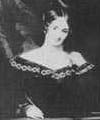.

Donne, John 1572-1631 English poet who studied law at Oxford. He sailed with Essex and Walther Raleigh to the Azores. In 1615 he was appointed Dean of St. Paul's where he became famous for his preaching. His vigorous poetry, is distinguished by profundity of thought, and passion, and he is recognized as the greatest writer of metaphysical poetry.
His private meditations Devotions upon Emergent Occasions include the immortal lines
'No man is an island' and 'never send to know for whom the bell tolls; It tolls for thee'
Fielding and Samuel Richardson laid the foundations of the modern novel.
Between the years 1729 and 1737 Fielding wrote 25 plays but he acclaimed critical notice with his novels 'The History of Tom Jones', 'A Foundling' and 'The history
of the adventures of Joseph Andrews'.
His greatest
success was 'The Beggar's Opera', which became - two hundred
years later - the basis for Brecht's 'Three Penny Opera'.
With the possible exception of William Blake, Wollstonecraft was the most influential of the Enlightenment radicals.
Mary was writing profusely, and published Frankenstein in 1818. No one could have predicted the extent of the book's popularity: it would remain the most widely-read English novel for three decades.
|


